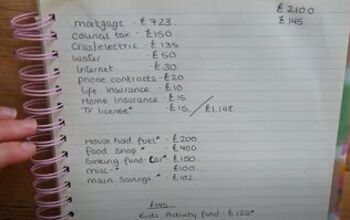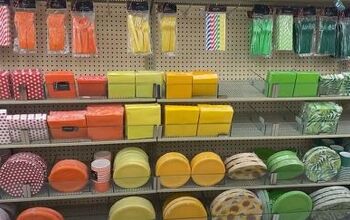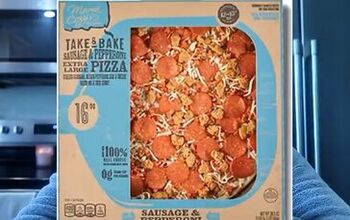4 Easy Budgeting Tips

If our budget is easier to do, it's more likely to happen, and we're more likely to meet our money goals.
So that is my strategy for today—simplifying money at home to empower you to take charge of your financial life. And with that, let's get right into it and discover how to make an easy budget for yourself.
1. Group things together
My first piece of advice for how to budget the easy way is to group things together. If you have 20 different categories of expenses, it is going to take a lot of time and effort to keep all of those straight. So grouping things together can save time.
One of the common things to group together is food and household. So this kind of means that the things that are bought at the same store go in the same budget. Anything on the same receipt goes on the same budget because your household and your food budget are one.
Another thing that might be a good pairing is kid and adult clothes. Just put it in one category, title it as clothes, adjust it as needed, and then that should simplify that category.
Find the groupings that work for you, that go together in your mind. Figure out the things that work for you so that you don't have a million categories. You need to have the absolute minimum number of categories so that you don't have to think about it too hard and you don't have to work too hard when you're doing your budget.
2. Use one income
My next tip for creating a fast budget is to fund your household budget with one income. I know this is not possible for everyone, but if we can avoid percentages like we're taking 60% from this income and 40% from this income, that does make your life more complicated because you have more than one paycheck that you're having to keep track of and having to input into the budget.
I'm really hoping that making this switch ourselves will bring some simplicity to our lives because when we get that one paycheck, we know that it's funding that one budget 100%, and then we have a different plan for all our other streams of income.
3. Find a system that works
My next trick is to find a system that works for you. The system of budgeting that works for me is not going to work for you and vice versa, which means you need to investigate and figure out what budgeting system really works for your life and your family.
Maybe what motivates you to stay on budget is having mason jars with categories and you put whatever money you have in there in cash at the beginning of the month and when it's gone, it's gone. And maybe that's the way that budgeting works for you.
Maybe you like the envelope system that Dave Ramsey really loves, or maybe you like a spreadsheet like me that you print out. If that's the kind of budget that works well for you, totally take advantage of that.
But maybe you're more of an Excel sort of person. Or perhaps, you like using a budgeting app to keep track of your expenses. Or, you could even do advanced envelope budgeting the way that Jordan Page does it.
Whatever it is for you, you need to find the budgeting strategy that works and not think that the only way to do it is this fancy Excel spreadsheet because if it doesn't work for you, it doesn't work.
So when you're looking for a tracking method, you should be asking yourself, what budgeting method will I actually do? And what budgeting method will my family actually look at or participate in?
4. Spend in select places
And my next strategy for simplifying your budget is to spend your money in one place. Or spend your money in as few places as possible. So this is just another trick to reduce your workload.
If you buy all of your things at one store, that means you come home with one receipt, and it is easier to figure out, and you don't have a pile of 20 little receipts. This also saves you time and money.
I find that every single time we go to the store, we at least spend $50. So if we go to three stores, that means we may spend more money than we intended to because we went to a different store, and we saw something fun, and we grabbed it.
We basically have two main stores that we go to for our necessities. We go to Fred Meyer, and we go to Costco. So, if we go to Fred Meyer one time a week, which is our goal, and we go to Costco one time a month, that's five total receipts that I have to deal with all month.
But if I went to all of these different places and got a receipt at each place, then keeping track of that in my budget is going to be quite a bit more paperwork.
If one receipt takes you about a minute to deal with, and you add five additional receipts, you are making the task of budgeting take five more minutes than necessary.
I know I am taking the receipt management down to a micro-level here, but if what makes the difference for you between not wanting to budget and wanting to budget is time, the amount of receipts could really make that difference in you actually wanting to do the budgeting.
Budgeting for beginners
Budgeting for beginners takes time, but with helpful tips and a little practice, you’ll be budgeting like the pros in no time.
In the comments section down below, let me know how you make your budgeting life simpler by creating an easy budget. I need all the new tricks and hacks that I can get.




















Comments
Join the conversation